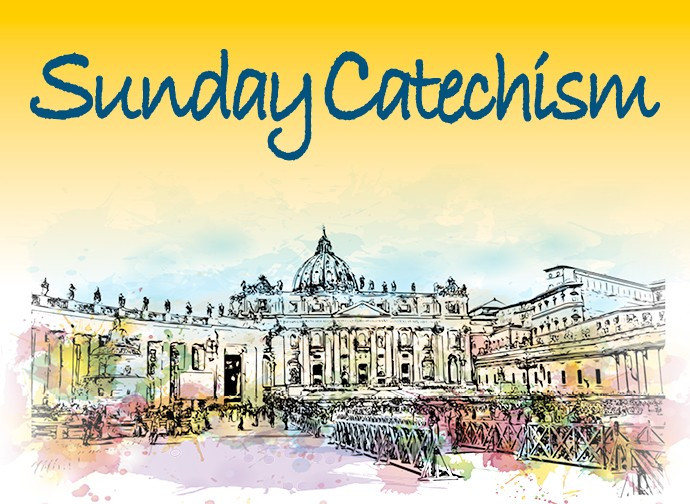Tradition and Scripture
Do the Scriptures suffice in order for Revelation to be accepted, as a certain theological approach would like to suggest? Revelation is found in the Scriptures but Tradition is still necessary for Revelation to emerge fully and be understood. Scripture and Tradition should not be counterposed nor separated to their detriment.

This lesson also focuses on the theme of Tradition and examines in depth its relationship with the Holy Scriptures, responding to the question: is everything found in the Holy Scriptures?
In the last lesson a text from the Council of Trent was referred to which states that Revelation, the only supernatural Revelation that God gives to mankind and through which He reveals Himself, is transmitted in two ways: through the Scriptures and unwritten Tradition.
What happened?
In the light of what is written in Paragraph 11, chapter three, of the Dogmatic Constitution Dei Verbum, a certain theological world began to argue that the Holy Scriptures are complete in themselves, that all Revelation can be found in the Scriptures and in some way the Scriptures are in themselves clear, complete and without need of interpretation.
This is the text:
"Those divinely revealed realities which are contained and presented in Sacred Scripture have been committed to writing under the inspiration of the Holy Spirit.".
Two considerations are necessary to understand the correct meaning of this text:
1- The first consideration - valid for every interpretation of any Magisterium text - is the following: the most recent texts must not be read in contrast to the texts that precede them, instead they clarify and deepen them.
2- There is also a principle found within the text itself that arises from the analysis of its genesis.
In schema III of Dei Verbum this expression is found:
"Divinitus Revelata [...] in Sacra Scriptura continentur et prostant"
"Divinely revealed truths are contained and expressed in Sacred Scripture"
This type of formulation, not found in the definitive text, had been rejected by the council fathers. They had objected because it lent itself to an interpretation contrary to the Council of Trent, by suggesting that Revelation was sufficiently found in the Holy Scriptures while setting aside the source of Revelation found in Tradition. For this reason changes were proposed that resulted in the current text:
"Divinitus Revelata, quae in sacra scriptura litteris continuentur et prostant, etc."
"Divinely revealed truths which are literally contained and presented in Sacred Scripture, etc."
This type of correction was expressly intended to avoid any interpretation which might imply that Revelation is entirely contained in the Holy Scriptures.
- What is the problem with this Second Vatican Council text?
It is what is referred to in theology as the "material sufficiency" of the Scriptures and gives rise to the following question:
Do the Scriptures contain all of Revelation and therefore in themselves are sufficient to understand divine Revelation?
The first consideration is that if the only Revelation that has been given to us is in two forms - the Scriptures and the Sacred Tradition - as the Catholic Church explicitly teaches, and if God has foreseen both these forms, it means that both of these forms are fundamental to understanding Revelation. So isolating just is a serious mistake.
Second: the Scriptures contain more explicit elements and other truths that are decidedly more implicit; this means that Sacred Scripture is not always absolutely clear.
For example. If we take the affirmation of the Most Holy Trinity, it is a very explicit fact; but on the other hand, for example, when we speak of the dogma of the Assumption of Our Lady in body and soul we cannot say that this is a fact explicitly contained in the Scriptures, but we cannot say either that it is not contained at all. Therefore, if we look at the encyclicals in the same way, the scriptural references contained in them are always enlightened and accompanied by the interpretation given by the Tradition of the Church.
The declarative tradition, or the explanation of the Scriptures, is a known fact. We find it abundantly practiced by the Fathers and we find it also present in the most recent dogmatic pronouncements.
Having made these considerations, we can speak of the Scriptures having a material or relative sufficiency, in the sense that in the Scriptures we can find Revelation, but Tradition is always necessary for the understanding of Revelation to emerge. Perhaps - but this is also debated - the only truth that is not found in the Holy Scriptures is that relating to the Canon of the Scriptures, that is, the definition of those biblical texts considered to be fully inspired.
The fundamental point is that Scripture and Tradition should not be counterposed nor separated to their detriment.
In conclusion, two important findings. A certain preponderant current of the Protestant world has supplanted the Catholic world in two respects:
1. A number of Protestant currents believe that not even Sacred Scripture is the only reference for Revelation, because it always refers to the consistency of both Scripture and Tradition with respect to the living Gospel of Christ. Their idea is that the Scriptures and Tradition must be overcome to reach a more authentic core of the Gospel and therefore of Revelation. But on what basis can it be said that something belongs to an original Revelation, if not by looking at the proper channels of transmission for this Revelation?
2. A second danger. The misconception that faith must somehow be authenticated by science. In the case of the Scriptures it means that exegesis, that is, the scientific point of view has the last word on faith. This is clearly an unacceptable position because faith has an internal interpretative norm that is not given by science, and even when we speak of the Scriptures, the ultimate interpretative norm is always in Tradition. Obviously the scientific aspect can help to clarify and deepen the literal sense, but certainly the last word is not that of exegesis and science.


